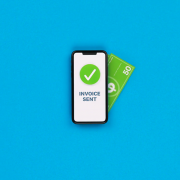
Over the course of a lifetime we have people around us who support and guide us. Initially it’s our parents, then as we get older it extends to teachers and coaches. Even when we enter the workforce it can still be helpful to have the guidance of someone more experienced. Fostering a relationship with the right mentor can make all the difference in terms of your own professional development.
Historical legacy
Throughout history there have been many remarkable mentor relationships. Perhaps the most famous is the multigenerational legacy of Socrates, Plato and Aristotle who developed upon each other’s philosophies over the course of decades. For a modern example we need look no further than Steve Jobs and Mark Zuckerberg who reportedly used to take long walks together to discuss the future of tech. The lesson here is that no person is an island. Pioneers have always built upon the knowledge of others and received support to enable their own success.
Despite this historical legacy, according to a recent Deloitte review only a minority of Australian respondents reported having a mentor in spite of the proven professional benefits.iThese are not isolated to the individual however, companies can benefit enormously from supporting professional mentorship programs. Staff retention is one area. Those who do receive mentoring in-house are twice as likely to stay with a business for more than five years.i
So how can you benefit?
- If you are looking to develop your career.
- Learn from the mistakes and successes of those who’ve done it all before.
- Leverage the networks they’ve taken years to build.
How to form a meaningful relationship with a mentor
Choosing the right mentor is the first and most important step. You need to think critically here. It’s not always best to choose your hero, so much as it is to find someone who will work well with you, who is generous with their time, a good listener and whose skill set fills the gaps in your own.
Once you’ve chosen your mentor, approach them for a coffee looking for some advice. Don’t ask flat out that you want to build a mentor relationship. It’s important to test the waters first and let the relationship develop organically. Further, if at any point it becomes clear either party isn’t benefiting from the situation, it’s best to leave it rather than waste each other’s time.
Be clear about what you want from the relationship. No doubt you have goals for your career or business, and you might have some obstacles you’re finding really hard to overcome. Understand what they are and get advice from your mentor that speaks directly to these.
One of the greatest benefits of having a mentor is that they can advocate for you amongst their network which opens you up to new opportunities.
Finally, resist the urge for this to become therapy. It’s about professional development, so endeavour to keep your attitude positive, proactive and goals focused.
Paying it back
Often the mentor relationship can feel one-way, but if well managed it can be mutually beneficial. For one, mentors can learn a lot through the act of teaching. It brings you back to basics. And secondly, the social contract implies that if you have received this wisdom, down the track or even simultaneously you can pay it forward. Therefore, if you are in a position to, give up an hour or two from your week to help along a younger or less experience colleague. There is only so much we can learn in institutional settings; hands on experience is so valuable to anyone trying to get a leg up in the workforce.
There are so many positives to having or being a mentor, both professionally and interpersonally. The benefits to both individuals and business is hard to deny.
Let’s stay in touch
Sign up to our monthly newsletter here to receive due dates, news, tax tips and other important things that we think are useful and interesting.
This article was written by a third party.











